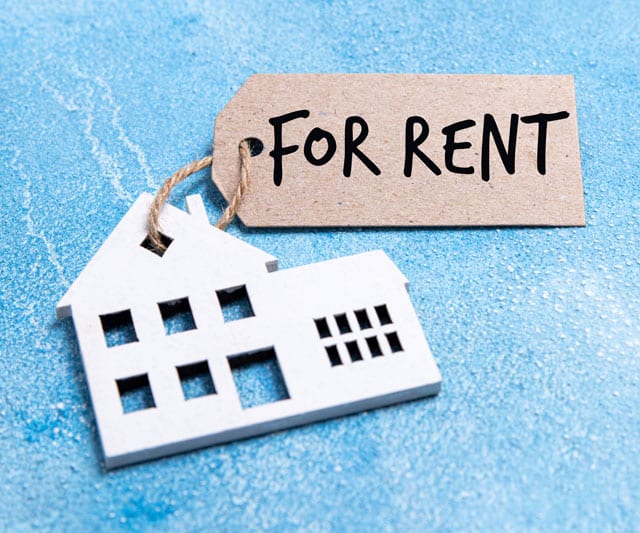The tumultuous real estate environment has – to say the least – stirred a whirlwind of questions.
Take rental properties, for instance. Under what circumstances does it make sense to buy and hold?
Jordan Gilberti, a senior lead planner at Facet, based in Baltimore, says there are myriad factors involved in the purchase of a rental property. “You should always know your ‘why’ before buying a rental property. What are your goals and values? How — if at all — does a rental property fit into this? Will owning a rental property cause you more stress than the gains it will provide? Do you truly want to be a landlord?”
If cashflow is in your crosshairs, he continued, you’d ask yourself if the property produces enough to justify the work of purchasing and managing the rental, as well as your cash output for the property, he explained. “If you desire appreciation, in some cases, it could make sense to buy a property with less cash flow — assuming the long-term appreciation is there.”
The Bigger Picture
Taking a broader look at the market, tapping internally collected data, more than 50,000 rental properties were purchased last year, as identified by SRA Analytics. Typically, gross yields ranged from 7% to 10%.
In the U.S., Chinese buyers were one of the largest groups of foreign buyers of residential properties, according to Statista They accounted for 13% of all sales to foreigners last year.
If you’re scouting for a rental property to purchase out of state in this year, South Carolina, Idaho and North Carolina are among the best locations, according to Management Library. Rounding out the top 10 states are Florida, Tennessee, Colorado, Arizona, California, Indiana and Texas.
Conversely, the list of the worst states for purchasing rental property bottom out with New Mexico, Hawaii and Louisiana.
The Power of Leverage
Returning to the cash discussion, in this case, it certainly helps to buy with it, Gilberti continues. “One of the many benefits of investing in real estate is leverage. If used properly and responsibly, leverage can allow you to purchase a rental property that would otherwise be out of reach without the help of a mortgage.”
On the other hand, if your goal is to generate as much cash flow as possible and be debt-free, there might be some cases where paying cash makes sense. “If your objective’s to maximize the cash-on-cash return of your dollars, it might make sense to put as little down as possible and leverage your money elsewhere,” he adds.
Danielle Harrison, a fee only financial planner and founder of Harrison Financial Planning in Columbia, Mo., is somewhat more nuanced. She notes that although you can buy rental properties with cash, there are many different financing options out there.
“Two of the more common ones are obtaining loans through banks or other lending institutions. If the property’s held in your personal name, you can get up to 30-year financing with fixed rate terms,” she says.
She explains this would look much like a mortgage taken out for your primary residence, but the interest rate is often higher as the risk to the lender’s higher since it’s not where you personally reside.
To Hold or Not to Hold?
Separately, these days, of course, it seems metrics rule. There’s several to bear in mind prior to deciding whether to buy and hold, like Google, says Gilberti. “A quick Google search will reveal the overwhelming number of ways to calculate the returns of a real estate deal.”
Some of the more common metrics to consider for a real estate purchase, he adds, are cash-on-cash return, cap rate and internal rate of return. Cash on cash return, for example, essentially calculates how much cash you put into a property vs. how much cash you get out in the form of cash flow. “This can be a good metric to compare the property to a more traditional investment, like the stock market.”
Harrison says to first consider if real estate is the right investment for you. “Although owning rental properties is labeled as ‘passive’ income, it’s often anything but passive. A lot of work and time is put into managing real estate and for many individuals I’ve worked with over the years, this ended up being an investment that they soon got out of or the returns were nowhere near where they thought they would be, especially after they factored in what I call the ‘hassle factor.’”
Additional Reading: Rentals Way Too High, Even in Small Towns
Additionally, you’ll want to decide if you’ll manage the property or turn that over to a management company, which could cost you anywhere between 5%-10% of your rental income, she remarked. “If you manage the property on your own, make sure you have the capabilities to handle maintenance needs or are able to hire those requests out.”
Flipping Appears Age Agnostic
Meantime, based on what Harrison’s radar is picking up, there’s not much of a link between flipping and age demographics. “I haven’t seen a particular age group more interested in flipping than others. During my time as a commercial lender, there was a steady stream of individuals who were looking to flip houses,” she says. “Those who were most successful often had some kind of connection to either the real estate (who could find the deals before they hit the market), construction industry (who could do the work themselves) — or both.”
That said, for those contemplating flipping houses, she suggests ensuring it’s a good investment and that “you have the time and resources to complete it.” Additionally, especially among those financing in this interest rate market, “you don’t want to be paying interest on a house you’re flipping for long, or it will eat into your profit margins.”
What’s more, always plan for it to take longer than what you expected and cost more. “Any construction project often ends up costing 20%-30% or more than what you initially planned. Make sure you have the resources to cover these ‘unexpected’ costs, she notes.
Chuck Green has written for a number of dailies, monthlies, weeklies and specialty publications. He has covered numerous topics including real estate, banking and finance, business and healthcare. He’s at chu1003374@aol.com.







